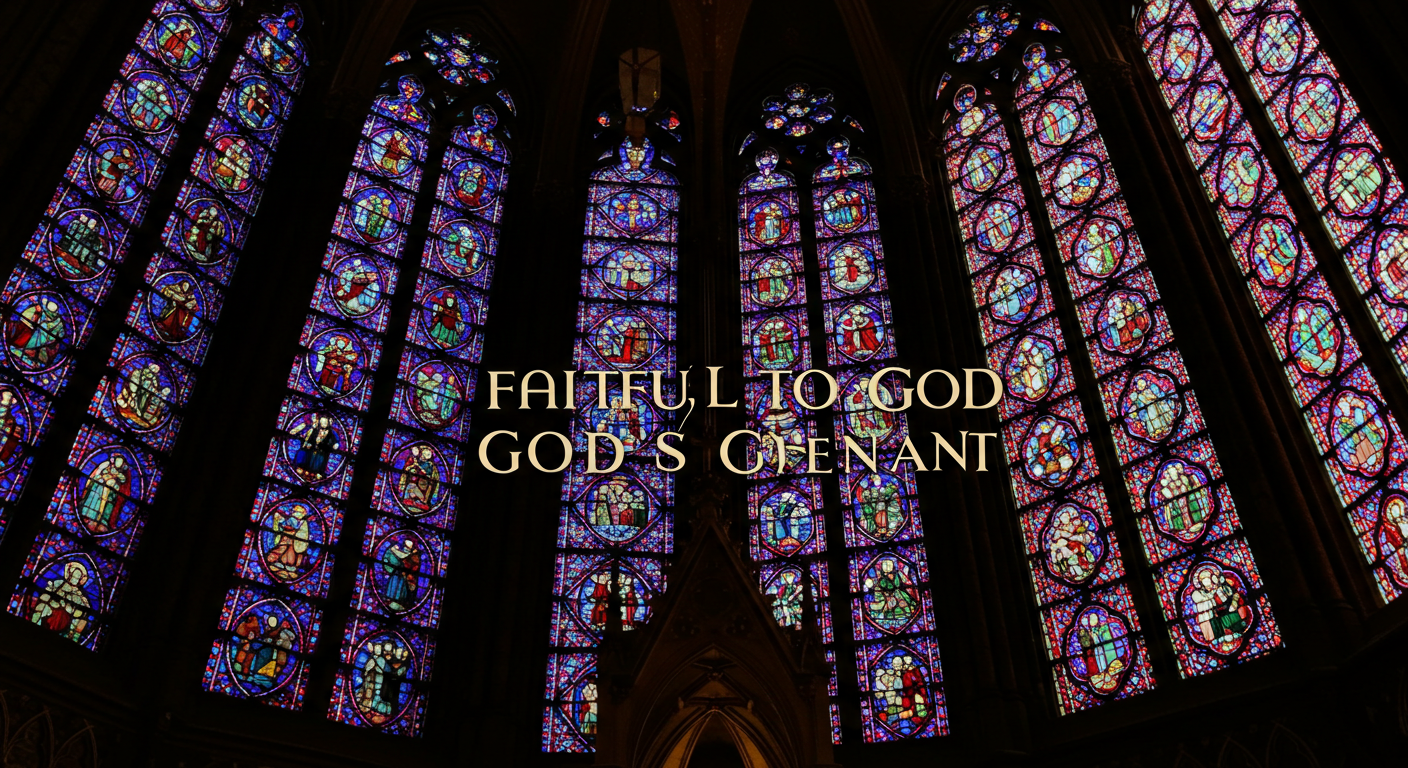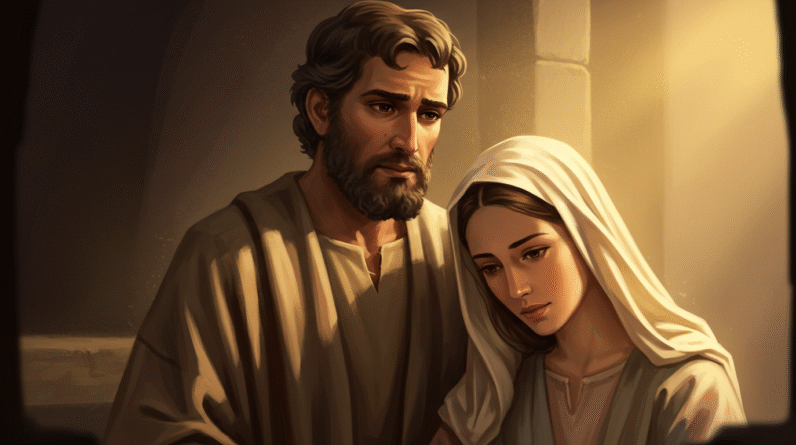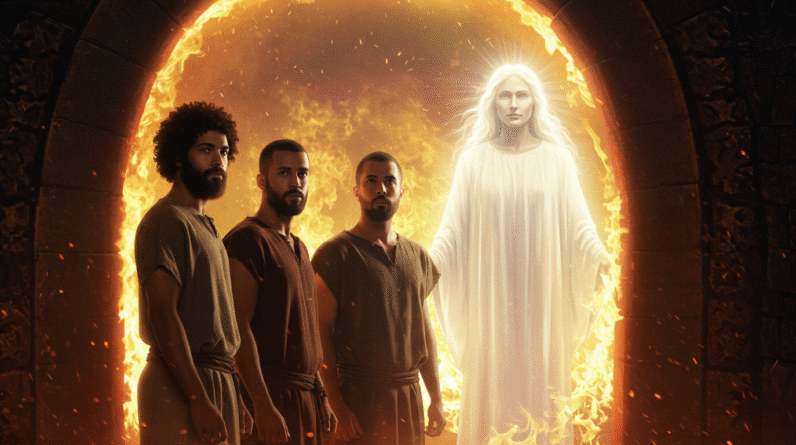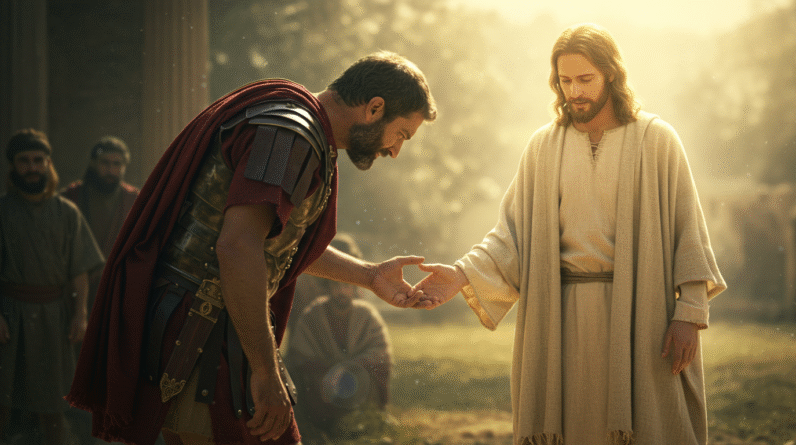Explore the enduring power of God’s covenant in Genesis 17:1-8 and Nehemiah 9:32-38. Dive into transformative promises that inspire faith and commitment today.

Faithful to God’s Covenant – Genesis 17:1-8; Nehemiah 9:32-38
Welcome to a journey that takes us through the pages of the Bible, exploring the rich tapestry of God’s covenant with His people. In this friendly exploration, we dive into key passages from Genesis 17:1-8 and Nehemiah 9:32-38. These texts unveil not just historical narratives but profound lessons and timeless promises that breathe hope and assurance into our lives today.
The Significance of the Covenant in Genesis 17:1-8
When you open Genesis 17, it’s as though you’re stepping into a sacred moment – a divine declaration that set the course for a nation and faith. Here, God appears to Abram, a man of significance and yet, quite relatable. Abram, who becomes Abraham, is at a pivotal moment in his life, both in faith and personal evolution. God’s covenant with him is not just a spiritual contract; it’s a radical promise that alters his identity and destiny. This isn’t just about a name change—from Abram to Abraham—but about a transformation that signifies an eternal bond.
Context of Abram’s Transformation
In the heart of Genesis 17:1-8, we find Abram at ninety-nine years old, standing on the threshold of destiny. Imagine being in his sandals, walking an arid land with only faith guiding your steps. God Almighty appears and declares an everlasting covenant with him. It’s a message that’s both personal and cosmic—a progenitor of nations, a bearer of God’s promise. Here, God not only offers reassurance but also a challenge: “Walk before me faithfully and be blameless” (Genesis 17:1).
The Promise and Its Implications
The covenant involves circumcision, a sign of the eternal bond between God and Abraham’s descendants. It’s more than a physical act; it symbolizes a consecrated life, set apart for divine purposes. God’s promise is expansive, promising numerous descendants and a lasting legacy. Abraham’s story here encapsulates faith’s audacious nature—believing against the odds and trusting in the unseen. The narrative transcends its ancient setting, reaching into your life, and asking you how you’re aligning with these timeless values and promises.
Lessons from Abraham’s Encounter
Abraham’s experience teaches you the significance of faith and obedience in your walk with God. When God calls you to transformation—whether it’s a shift in your career, family dynamics, or personal growth—trust becomes your anchor. This story encourages you to embrace change faithfully, confident in the promises that God has made over your life. It’s a reminder that even when circumstances suggest otherwise, His faithfulness remains.
Reflections from Nehemiah 9:32-38: Remembrance as a Path to Faithfulness
Transitioning to Nehemiah, we find a community in reflection. Nehemiah 9:32-38 captures a poignant moment where the people of Israel recount their history and affirm their commitment to their covenant with God. This passage isn’t just a backward glance; it’s an acknowledgment of God’s unwavering faithfulness amidst human frailty.
Contextualizing Nehemiah’s Prayer
In Nehemiah, we find Israel at a crossroads, just like many of us at various stages in life. This prayer of confession is more than a recital of past sins; it’s a communal pledge to return to God’s ways, a heartfelt acknowledgment of their ancestors’ missteps and God’s constant grace. Nehemiah stands as a leader recognizing that despite failings, returning to the covenant is possible and crucial.
The Power of Collective Remembrance
By acknowledging their collective past—both the triumphs and the failures—the people of Israel could anchor themselves in God’s narrative. Nehemiah’s prayer teaches you the importance of remembering where you’ve come from so that you might chart a different, more faithful future. This calls you to consider how remembrance functions in your own life. How do you honor past lessons, and where do these lessons guide your present actions and faith commitments?
Renewed Covenant and Enduring Commitment
Nehemiah 9:32-38 is a testament to the power of cinching tighter the bonds of the covenant through open confession and renewed promises. It speaks to you today, proposing reconciliation as an ongoing journey. Through reflection, you stand in a place where past, present, and future meet, providing an authentic context to experience God’s faithfulness without reservation.
Modern Implications and Personal Reflections
So, how do these ancient figures—Abraham and the people of Nehemiah’s time—speak to today’s world? Their stories echo through time, offering profound insights into modern dilemmas. Whether it’s the struggle of holding onto faith in a rapidly changing world or maintaining fidelity to commitments in a disposable culture, their journey asks probing questions.
Living the Covenant Today
Today, living the covenant may look like acts of social justice, environmental stewardship, community building, or deeply personal commitments like marriage or vows of service. Abraham’s steadfast faith and Israel’s reflective commitment invite you to consider how you’re bearing witness to God’s covenant in your actions and choices.
The Intersection of Faith and Daily Life
Both Genesis 17 and Nehemiah 9 present faith as an active component of daily life, not relegated to the halls of a place of worship or moments of crisis. These scriptures ask you to integrate faith into the rhythm of life. Whether it’s in parenting, careers, or personal pursuits, the question remains—how do you, like Abraham or Nehemiah’s community, reflect God’s covenant in every action and decision?
Resonance with Contemporary Challenges
In a world rife with division and uncertainty, the stories of Abraham and Nehemiah’s community are more than biblical relics. They compel you to examine today’s struggles through a lens of divine faithfulness and promise. They remind you to hold onto what is good, renew commitments where they’ve faltered, and trust in the steadfast promises that are as real today as they were then.

Key Bible Verse: The Beating Heart of Faithfulness
To encapsulate the journey of these scriptural stories, consider this verse: “I will establish my covenant as an everlasting covenant between me and you and your descendants after you for the generations to come” (Genesis 17:7). This verse serves as a dynamic reminder that God’s promises are not bound by time. They reach across generations, anchoring your faith today while inspiring hope for what’s to come.
A Thought-Provoking Question
As you ponder these narratives and their meaning in your life, consider this: How might fully embracing the covenants God has established reshape your understanding of identity, purpose, and community?







